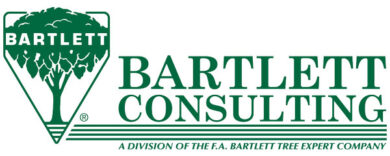The Power of Propane
By Brian Feehan
Meeting customer needs has always been a prime focus for commercial lawn care company operators. In recent years, customers have shown an increased interest in working with businesses that offer sustainable solutions. That means lawn care companies are investigating products that meet that need.
The answer may be propane-fueled commercial lawn mowers and equipment. Studies show propane-fueled lawn mowers reduce greenhouse gas emissions by almost 50 percent compared with gasoline-fueled counterparts, and carbon monoxide emissions by more than 80 percent. Those low emissions mean labor continues on Ozone Action Days when use of gasoline-fueled mowers is limited or prohibited.
Propane-fueled mowers can also help lawn care companies achieve lower operating costs. For example, propane is a cleaner-burning fuel than gasoline, making oil changes easier. Further savings comes from the elimination of fuel spillage, leakage, and theft that can plague gasoline use. Financial incentives are also available from select state propane gas associations that offer reimbursements for incremental costs associated with purchasing a propane-fueled mower.[1]
When it comes to propane-fueled mowers, lawn care companies have plenty of options. More than 29 propane-fueled commercial lawn mower models exist today from the industry’s top brands. Available models allow lawn care company operators to quickly tap into the sustainability and cost benefits, along with the propane refueling infrastructure already in place. Other propane-fueled lawn equipment on the market today includes handheld equipment such as string trimmers and blowers.
Also known as liquefied propane gas, LP-gas, or simply LP, propane is nontoxic, colorless and virtually odorless; an identifying odor is added so the gas can be readily detected. Propane cylinders of varying capacities are mounted horizontally on propane-fueled mowers. Most cylinders are for vapor service only, and include a liquid prevention device (LPD) attached to the end of the vapor tube, along with an overfill prevention device (OPD). These cylinders are mower specific, even though they might look similar to propane cylinders used for forklifts. What makes them different are a left-hand connection and a specific collar that indicates mower use only, helping ensure commercial lawn care companies use the proper equipment.
Two types of fuel systems are available on propane-fueled commercial mowers liquid injection and vapor injection. Working closely with equipment dealers, manufacturers, and local propane providers can help lawn care companies identify the mower and the fuel system that best fits their needs.
Many propane providers offer cylinder exchange programs to lawn care companies, which usually include on-site installation of a cage to house cylinders. For larger volumes, a no-spill dispenser can be installed on site and used to refuel both mowers and propane-fueled work trucks.
Available equipment options
Below is an overview of propane-fueled mower models from industry-leading brands for lawn care operators to consider adding to their fleets. Keep in mind, this list is just a start — manufacturers and equipment dealers can provide further details about the full range of propane-fueled mowers available.
Ariens/Gravely: The Pro-Master 260H LP XDZ zero-turn mower features a 28-hp./992cc Generac LP engine.
Bad Boy: The Propane Series zero-turn mower uses a Briggs & Stratton 895cc/32-hp. Vanguard V-Twin engine allowing for an 80 percent emissions reduction.
Cub Cadet Commercial: The new TANK S LP zero-turn mower utilizes an 852cc or 999cc Kawasaki engine powered by liquid propane.
Dixie Chopper: The Xcaliber Propane zero-turn mower is fueled by two 40-pound propane cylinders and a 990cc Generac LP engine.
EnviroGard: The 64- and 74-inch “Green” Front-Cut Mowers, available from Onyx Environmental Solutions, use a 28-hp. propane engine with full warranty from Kawasaki.
Exmark: The Lazer Z Advantage Series zero-turn mower is powered by a 28-hp. Kawasaki V-Twin engine. Also available are the Turf Tracer and Turf Tracer HP propane-fueled walk-behind mowers.
Ferris Industries: The IS 3100Z zero-turn mower features an 895cc Briggs & Stratton Vanguard Big Block V-Twin engine with vapor-draw fuel tanks.
Husqvarna: The PZ6029PFX zero-turn mower uses a Kawasaki FX Series 29-hp./852cc engine. Optional 33-pound tanks hold about 14 gallons of propane, allowing all-day operation.
Scag Power Equipment: The zero-turn Dual-Fuel Turf Tiger is the only dual-fuel powered commercial mower on the market, with the ability to operate on both liquid propane and gasoline. An optional propane-only conversion kit allows it to conform to local regulations, while the mower is also available with a Kohler propane-fueled engine.
Schiller Grounds Care: The Bob-Cat Predator-Pro LP zero-turn mower uses a 30-hp. Generac engine designed to take advantage of propane’s higher octane level.
Snapper Pro: The S200xp zero-turn mower features an 895cc Briggs & Stratton Vanguard Big Block V-Twin engine, offering up to 30 percent reduced emissions.
Zipper Mower: The front-mount Model STS-28LP uses a Kawasaki 28-hp. air-cooled OHV engine.
In addition to these mowers, propane-fueled handheld equipment is also available. For example, both the Lehr Eco Trimmer and Eco Blower use a 16.4-ounce propane canister to operate a 25cc 4-stroke engine, achieving a two-hour run time. Both products produce no evaporative emissions, and avoid the need for priming, carburetor gum-up, and winterizing.
Leveraging resources, information
Commercial lawn care companies eager to benefit their business’s bottom line and respond to customers’ growing interest in working with businesses that offer sustainable solutions see the benefits of propane-fueled equipment. Financial incentives, reduced fuel and oil costs, a simple on-site propane cylinder exchange program, and less environmental impact make adding propane-fueled mowers an easy decision.
Brian Feehan is vice president of the Propane Education & Research Council. The Propane Education & Research Council was authorized by the U.S. Congress with the passage of Public Law 104-284, the Propane Education and Research Act (PERA), signed into law on October 11, 1996. The mission of the Propane Education & Research Council is to promote the safe, efficient use of odorized propane gas as a preferred energy source.
[1] Propane Education & Research Council, “Partnership with States,” http://www.propanecouncil.org/about/partnership/state-partnerships/ (accessed October 5, 2010).

